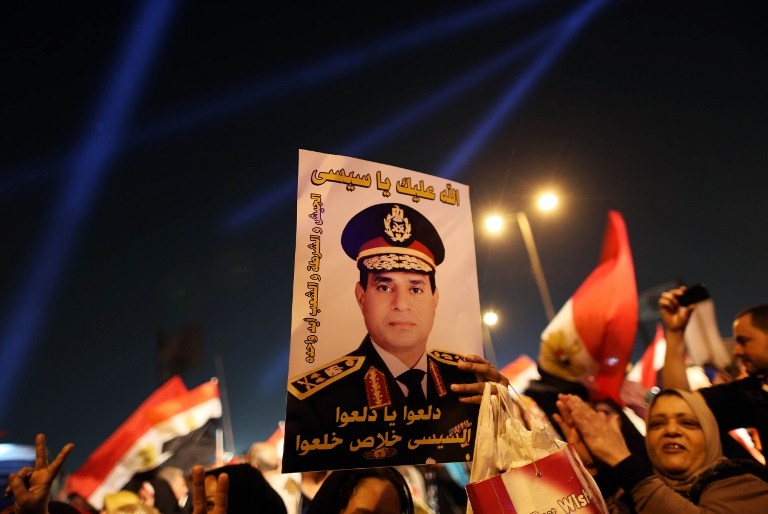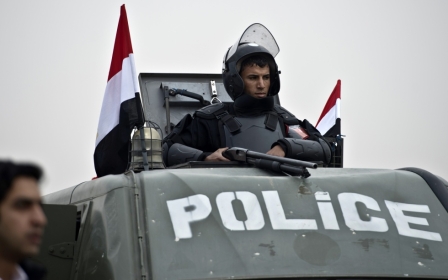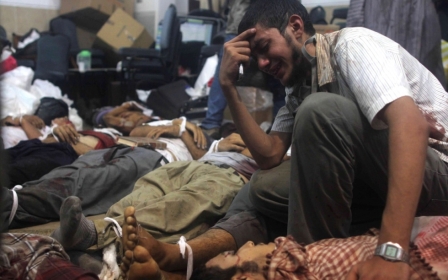Egypt’s foes, allies trade blows in Geneva

The United States and other countries denounced the human rights situation in Egypt on Wednesday at a United Nations meeting, examining the country's record for the first time since the 2011 ouster of long-time autocrat, Hosni Mubarak.
The criticism by the US - a long-time ally of Egypt and its top military donor - came during a heated discussion in Geneva, where Egyptian human rights groups said they are facing the worst conditions in years and that their work to highlight abuses is becoming increasingly difficult.
"Steps taken by Egypt have resulted in violations of freedom of expression, peaceful assembly and association, deprived thousands of Egyptians of fair trial guarantees, and undermined civil society's role in the country," US Ambassador Keith Harper told the UN Human Rights Council.
Harper called for the release of political prisoners and urged Egypt to "investigate excessive use of force by security forces, publicly release findings, and prosecute those identified as being responsible."
Hundreds of demonstrators have been killed in clashes with security forces since a popular uprising overthrew Mubarak, as well as since Egypt’s first freely elected president, Mohammed Morsi, took office in 2012.
Violence against demonstrators and a thorough crackdown on journalists and activists intensified when the military overthrew Morsi, leader of the now-banned Muslim Brotherhood, following mass protests against him last year.
Hundreds of Morsi’s supporters were killed in the summer of 2013 by police who raided a protest camp in Cairo.
Washington’s condemnation on Wednesday is the strongest it has made of president Abdul-Fatah al-Sisi since it froze much of its $1.3 bn in annual military aid to Egypt last year, including helicopter sales, after the toppling of Morsi.
In June, US Secretary of State, John Kerry said that the US had released $575 mn in assistance for Egypt's military and promised to deliver 10 Apache helicopters, signalling that Washington’s flow of military aid to the post-coup government would continue.
The US’s criticism on Wednesday echoed that of many other countries at the UN meeting including Britain, Sweden, Germany, Turkey, Brazil, and Norway who criticised harsh sentences - including hundreds of death sentences - meted out to government critics, who are routinely branded as traitors and spies.
Allegations of police brutality and torture, and a 2013 law restricting protests were also singled out for criticism.
The session revealed the deep divide that has emerged over Egypt internationally, with several UN member states, including Saudi Arabia, the UAE (who both backed the military’s ouster of Morsi) Algeria, Lebanon and Russia, coming out in support of Sisi’s government, praising its efforts in improving human rights as, well as its commitment to fighting terrorism.
Egyptian officials put forward a bullish defence, with the minister for transitional justice, Ibrahim al-Heneidy, saying his country's new constitution was "a true victory for human rights and freedoms" and that the government was committed to upholding the international treaties it had signed.
Deputy Foreign Minister of Egypt, Hesham Badr, told the session that some of the comments by delegations were based on "misconceptions," reminding them that “the government is acting within the boundaries of its laws in order to combat terrorism.”
Attacks on police and army personnel have been on the rise over the past year in Egypt. Hundreds of police and army personnel have been killed in attacks by Islamic militants.
At least seven Egyptian rights groups pulled out of the UN meeting in Switzerland on Wednesday, citing fears of reprisals by Egyptian authorities on their return.
In a statement, the groups condemned a 10 November ultimatum given by the Egyptian government to NGOs to abide by a new law, regulating their activities, saying it was restrictive and oppressive.
The UN council will publish a conclusion Friday, containing non-binding recommendations for ways in which Egypt can improve its human rights situation. In most cases, countries that are reviewed immediately respond by noting which recommendations they accept or reject.
The review, usually a technical meeting, garnered considerable interest because of successive reports of widespread abuse in Egypt. The Egyptian government has usually brushed off criticism, adding that it has been abiding by law or is in the throes of a violent wave of militant attacks that require a tough security policy.
Middle East Eye propose une couverture et une analyse indépendantes et incomparables du Moyen-Orient, de l’Afrique du Nord et d’autres régions du monde. Pour en savoir plus sur la reprise de ce contenu et les frais qui s’appliquent, veuillez remplir ce formulaire [en anglais]. Pour en savoir plus sur MEE, cliquez ici [en anglais].



